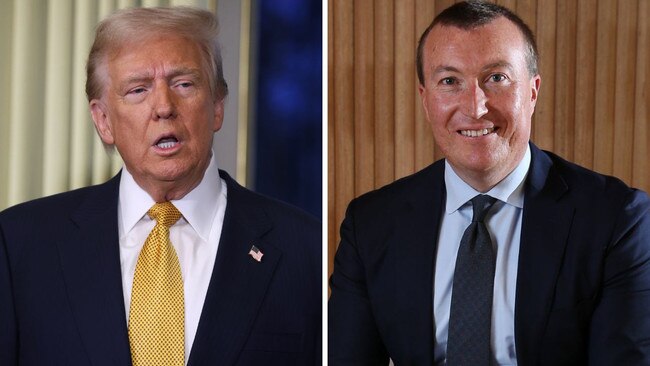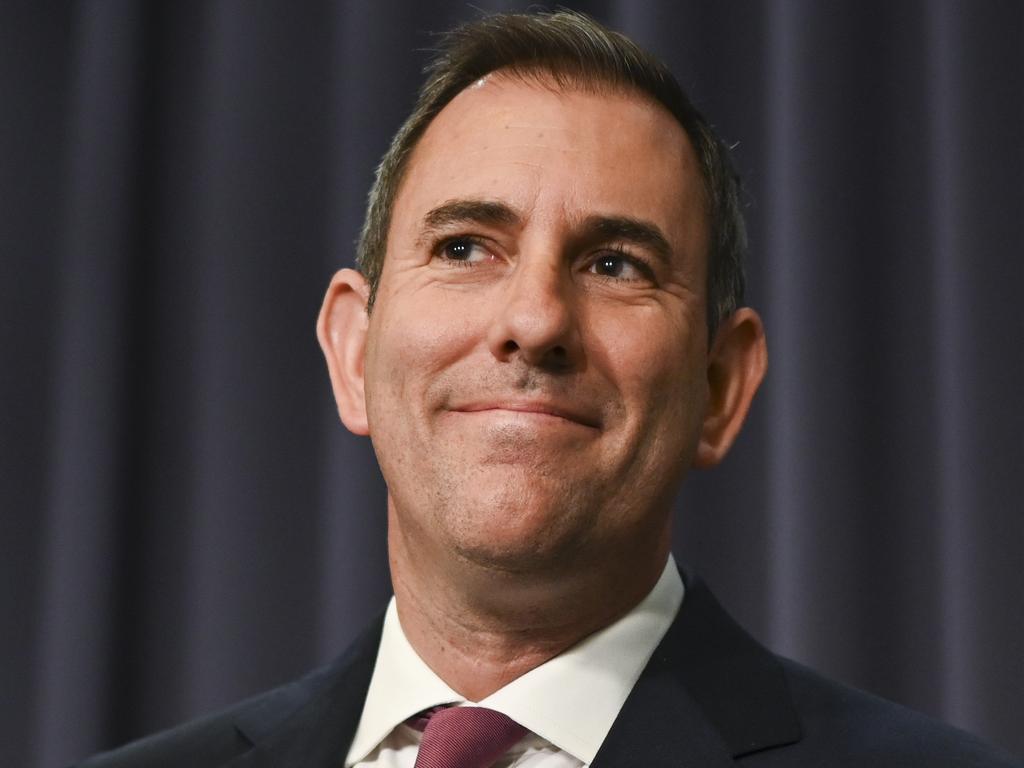Donald Trump 2.0: Reform or roll over, warns Business Council of Australia
The Business Council of Australia says the government must respond to Donald Trump’s aggressive pro-business platform by reducing the 30 per cent corporate tax rate and slashing red tape – or risk being left behind.

Australia will need to lower its 30 per cent corporate rate as part of a broader tax shake-up, embrace deregulation and lift its productivity performance to stay competitive in the Trump 2.0 era, according to a fresh warning from the peak business lobby.
Business Council of Australia chief executive Bran Black said Australia must pursue an aggressively pro-business agenda in response to Donald Trump’s own calls to reduce America’s 21 per cent company tax rate, slash red tape, cut the bureaucracy and fast-track approvals for major investors in America.
In an interview with The Australian, Mr Black said there was an opportunity following Mr Trump’s victory for Australia to overhaul its economic settings to prepare the nation for the future. But a failure to respond appropriately would risk capital leaving the country for more attractive investment destinations overseas while also baking in a poorer quality of life for Australians.
The BCA’s warning came shortly before the US president-elect demanded Republicans reject legislation brokered by GOP House speaker Mike Johnson aimed at extending government funding after Elon Musk, charged with cracking down on waste, blasted the excessive spending in the 1500-plus-page bill.
The political brinkmanship threatens a US government shutdown by midnight Friday (Saturday AEDT), with the stand-off coinciding with the US Federal Reserve’s warning that inflation remains “somewhat elevated”.
While rates were cut as expected, Federal Reserve chair Jerome Powell said the central bank was “at or near a point at which it will be appropriate to slow the pace of further adjustments”, suggesting only two further cuts in 2025 instead of four.
The updated outlook sent shockwaves through Wall Street. All major indexes recorded their worst day in months, and the turmoil led investors to wipe $50bn off Australian shares as the Aussie dollar hit two-year lows.
Speaking to The Australian in Washington where he met business, congressional and Republican representatives, Mr Black declared: “We need to be doing much more if we are going to respond to the types of policies that President Trump has spoken to during his campaign.
“We need to be looking at how we can reduce regulation for a start. So that’s existing regulation. Then we also need to look at how we go about making new regulation. So what are the types of productivity requirements that we put in place, or the types of productivity-related analysis that we put in place before we approve regulation?”
Mr Black said that if the US reduced company tax rate to 15 per cent, “we would absolutely need to be looking at our company tax settings”.
“But we should be doing that in the context of a broader look at our tax-collection arrangements,” he said. “Because we know, again from the Intergenerational Report, that, over the course of the next few decades, it is projected that there will be an even greater taxation burden placed on a proportionately fewer number of people working in the economy.
“So our point is, now is unquestionably the time for us to be thinking, what is it that we need to do to make ourselves competitive, not just now, but into the future?”
As the BCA chief executive warned about the competition challenge a second Trump administration would present Australia, a new report from the Productivity Commission revealed bumper jobs growth and Covid-era government spending in Australia were key reasons the nation had diverged from the US on productivity growth.
Deputy chairman Alex Robson said the commission in coming months would review deregulation and tax reforms in countries such as the US as part of Jim Chalmers’ push to review Australia’s “business dynamism”.
“We’ll be looking potentially at deregulation and red tape and the burden on business, industrial relations, tax reform, all of those are candidates for what we might look at in that particular inquiry,” Mr Robson said.
With new figures in Australia revealing that nearly 26,000 businesses had been plunged into insolvency since the 2022 election, Mr Black said it was incumbent on both the Labor and Liberal parties to explain “what is it that they will do now to create the economy of the future that we need?”
“We have to do better if you want to just preserve our quality of life,” he said.
Jim Chalmers on Wednesday handed down a mid-year economic and fiscal outlook that revealed cumulative deficits across the forward estimates had increased by $21.7bn to total $144bn. Federal spending as a share of GDP is forecast to rise to 27.2 per cent next financial year, a level not reached outside the pandemic in almost 40 years.
Mr Black said he was deeply concerned about public spending, noting it was the highest since 1987 excluding the Covid years. The focus for Australia needed to be “getting rates down as quickly as possible” by “keeping spending under control and ... driving productivity”.
Declining productivity was “the real problem”. Mr Black argued that Australia was lagging well behind the US which was already riding a world-leading productivity surge. The Trump administration had the potential to “drive that even further”.
Mr Black pointed to commitments by Mr Trump to carve out 10 regulations for every single regulation added to the books, fast-tracking approvals for any investor bringing in more than $1bn into the US and reducing the federal bureaucracy to drive efficiencies across the administration.
“Those are very attractive points for business,” he said. “The best indicator of future performance is past performance. We saw in 2017, when President Trump was last in office, that he reduced the company tax rate from 35 per cent down to 21 per cent.
“And, at that point in time, we became a net exporter of capital to the United States. And we remained in that position for five years. And we hadn’t been in that position of being a net exporter of capital previously, since 1912, for that period of time, for five consecutive years.”
Mr Black made the trip to America to understand the opportunities and risks for businesses posed by Mr Trump, holding meetings with US Chamber of Commerce senior vice president John Murphy and Business Roundtable chief executive Josh Bolten.





To join the conversation, please log in. Don't have an account? Register
Join the conversation, you are commenting as Logout